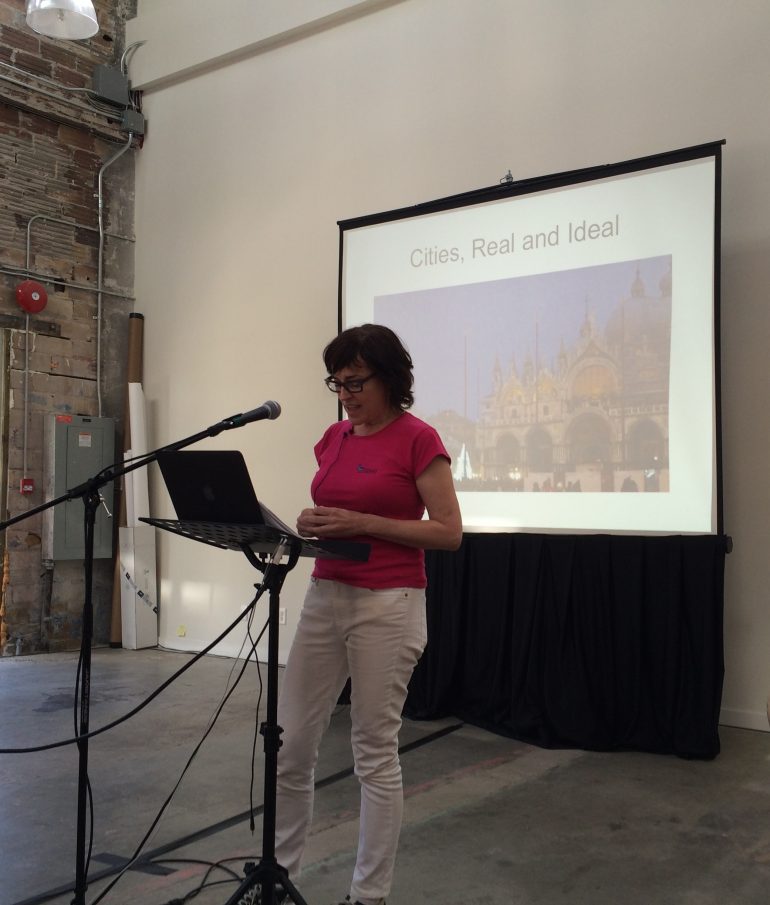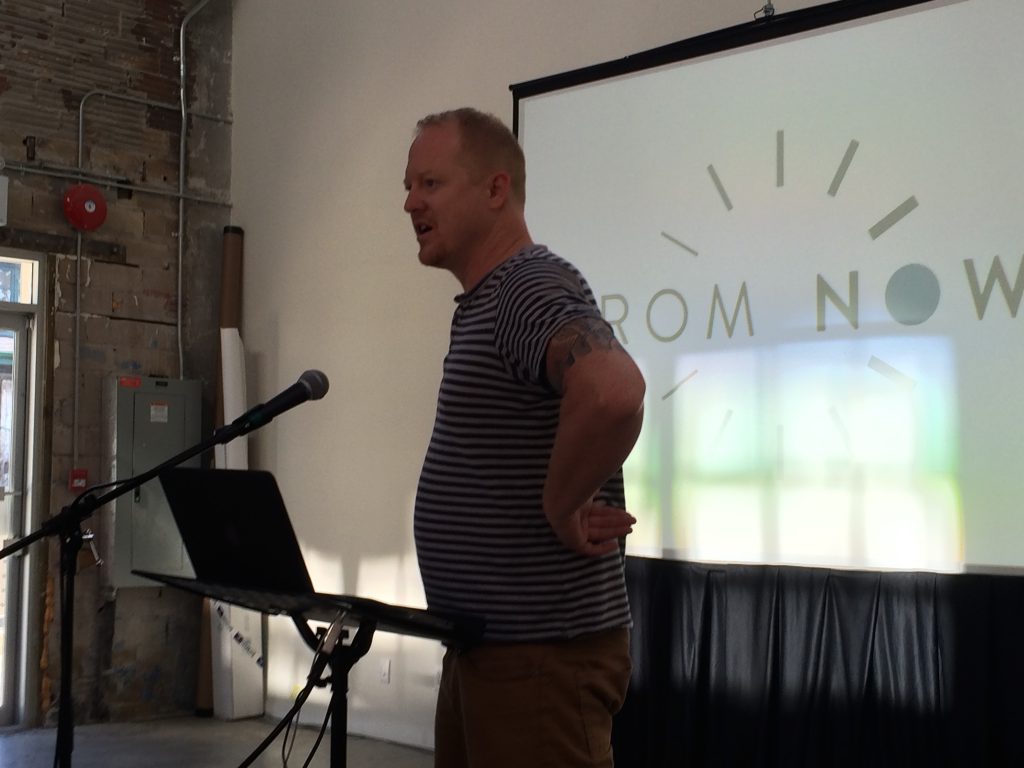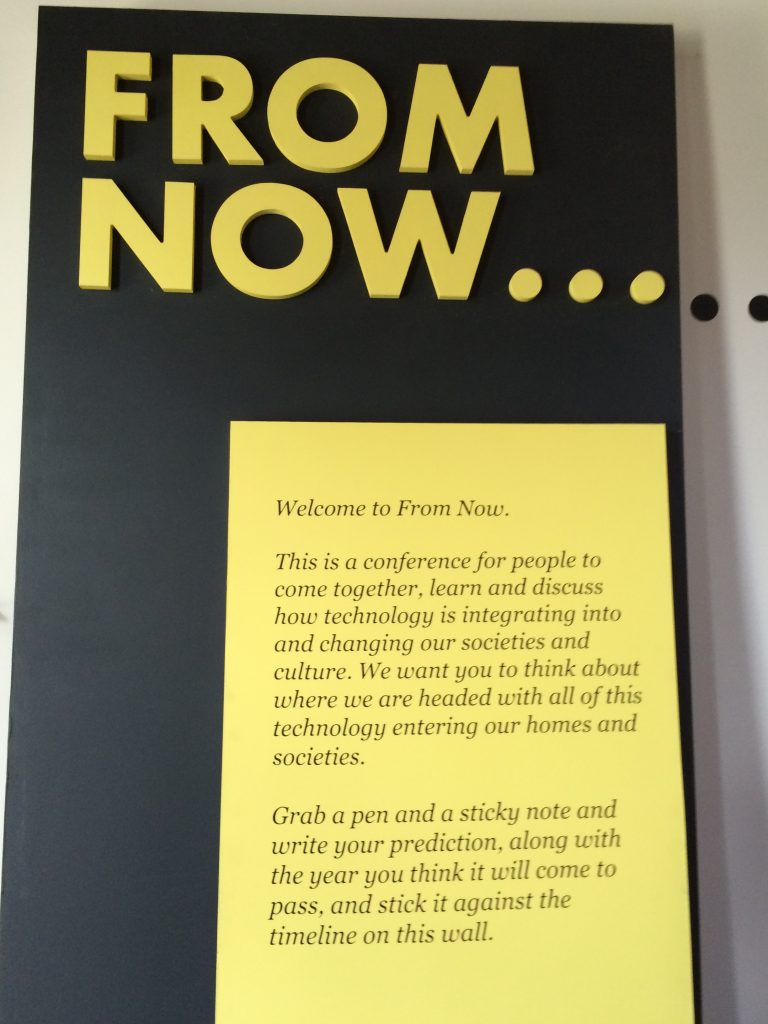“We are at the very beginning of time for the human race. It is not unreasonable that we grapple with problems. But there are tens of thousands of years in the future. Our responsibility is to do what we can, learn what we can, improve the solutions, and pass them on.” – Richard Feynman
Vancouver’s recent From Now conference gave over 100 people an opportunity to learn and discuss how technology is integrating into, and changing our societies and culture. Conversations both formal and informal ranged from smart cities, wearables, the internet of things, the quantified self, quantum computing, big data, grassroots tech movements, the maker movement, apps, mobile, robotics, cyborg anthropology, philosophy, bionics, user experience, the impact today and the future of where our tech-led world is taking us.
However, the theme stayed true to keeping humanity with technology. The speakers delivered thoughtful, thought provoking, entertaining topics with each warranting a feature story in their own right.
Nora Young’s (Journalist and host of CBC Spark) morning keynote ‘Design for the Internet of Things: An Urban Utopian Fantasy’ had a deep resonance. For the past 34 years ‘the city’ has been my home, and Young’s talk spoke to the roles that cities play today and how they’ll be the future home to more and more of the worlds population.
The evolution of the connected city has to be more than the applications designed for the efficient delivery of services. Technology can increase citizen engagement, but should also give us a deeper sense of local connection. Asking “does it all have to be known?” Young suggested “we need our digital cities to have a place for the unstructured, unplanned, discoverable, and with room for surprise.” Young cited the great example of Bristol, UK, being a ‘playable city’ with their “hello lamp-post project.”
“We need to actively plan and think seriously how the digital world will influence our physical spaces,” said Young, reminding everyone that we are and will continue to be part of the digital city. The language of the smart city can’t be driven and dominated by the soulless, technocratic, neo-liberal discourse. Touching on her conversation with Adam Greenfield and his work “Against the Smart City,” it served as further reminder about the importance of creating a better human experience.
There’s the need to think locally, and as Young offered to build on the unique “placeness.”
By taking a distinct approach to urban information she asked “what’s the data personality?”
“What’s the digital difference between Toronto and Vancouver?” she asked. “Consider how we experience our spaces, and to look at something like the Murmur project, illustrating how located media can play a role in connecting us to place.”
There’s a place in the language of the connected city for the vernacular, or to reimagine our spatial relationships through the experience of augmented reality. As citizens we can take ownership and claim to build our own digital and data environments. Young sees this as creating “the democratization of space making in the urban environment.”
Citizen engagement should be about advancing our collective creative and intellectual capital. Within this fabric of citizenry, Young pointed out that “partnerships are needed in the politics of the city.” Conversations should be happening around how we define the notions of “data civics and the data commons.” She shared the importance of spreading of ideas, and how Social Physics can act as a mechanism of change.
Technology can’t be about creating individual bubbles and it can’t be about cutting people off or creating isolation. Isolation only creates more despair. Taking a moment, pausing to wipe away the tears, Young reflected on a friends recent suicide. “Technology should be about the removal of obstructions. The city can be a place of accidental sharing, bumping shoulders, unexpected connections, and place to just hang out. Let it encourage empathy. How do we see ourselves better? Other people better? How do we see each other better?”
Defining the type of cities that we want to call home is “a moral and spiritual issue. The city should be a platform for improving the human experience.” Technology isn’t the savior, it’s only the enabler. We’ll get the cities we want by asking more of ourselves, not by asking more of a city government. Revolutionaries we’re not.
The evolution we should want will happen, as Young said, in true Canadian fashion “by taking to the sidewalk in an orderly fashion.”




